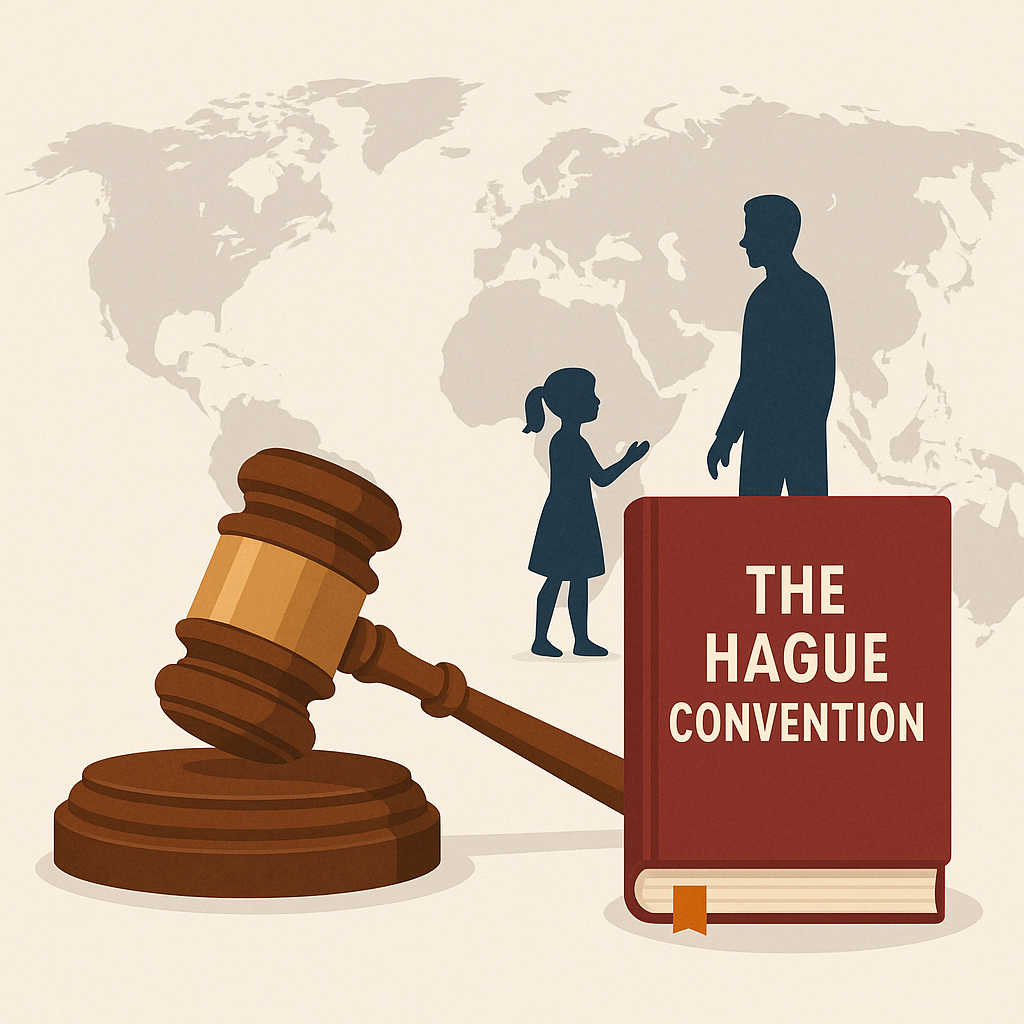When a parent takes a child across international borders without the consent of the other parent or a court order, the legal consequences can be overwhelming. The Hague Convention on the Civil Aspects of International Child Abduction is an international treaty that governs the return of children to their home country by parents seeking to regain custody. But how does this work in practice? This blog will explain what the Hague Convention is and what you should know if you’re facing an international custody dispute.
What Is the Hague Convention?
Countries that are signatories to the Convention agree to follow a uniform legal process to return children who have been wrongfully removed from their home country or wrongfully retained in another country. The purpose is to encourage cooperation between countries to help enforce custody rights, no matter what country you are from, and discourage parental child abduction.
What the Hague Convention Does—and Doesn’t Do
The Convention is used to determine whether a child was wrongfully removed from their country of habitual residence and whether that child should be returned to it. The Convention cannot usually be used as a tool to establish custody rights of a child.
Determining a Child’s Habitual Residence
The key question in a case involving the Hague Convention Treaty is the child’s country of habitual residence. The USA is a signatory country. Courts in countries that signed that treaty look to factors such as:
- The length of time the child has lived in a country
- School enrollment and educational ties
- Relationships with friends and family
- Language fluency
- Community involvement and healthcare providers
The child’s habitual residence can become particularly complex to determine when children have moved frequently or split time between countries.
Legal Defenses in Hague Convention Return Cases
Although the Hague Convention promotes the return of abducted children, there are valid defenses that the alleged abducting parent can assert under specific circumstances.
Grave Risk of Harm (Article 13(b))
A court may decline to order a child’s return if the alleged abducting parent presents evidence suggesting the child would be exposed to a grave risk of physical or psychological harm. Usually, this defense is offered in situations involving:
- Domestic violence
- Child abuse or neglect
- Ongoing threats to the child’s safety
If this defense is raised, courts will evaluate the severity of the risk and may consider “ameliorative measures” (actions taken to mitigate the risk of harm to the child) that the requesting country may propose, such as supervised visitation, protective orders, or required counseling.
Mature Child Objection
If a child is of sufficient age and maturity and objects to being returned, their opinion may be taken into account. Courts in the USA, including Michigan’s family courts, will typically interview the child to determine if they are of sufficient age and maturity to make this decision. This doesn’t guarantee the child will remain in the foreign country, but the court will consider their wishes alongside other factors.
Practical Tips for Parents in International Custody Disputes
If you are dealing with an international custody dispute and the Hague Convention Treaty, here are a few steps you should take:
- Consult an experienced international family law attorney. Hague Convention cases are highly specialized. Work with someone who has experience handling cases of this nature.
- Document everything. Maintain detailed records that help demonstrate which country is your child’s habitual residence. Including but not limited to school records, medical records, address history, and social connections.
- Take preventative measures. Consider enrolling your child in the Children’s Passport Issuance Alert Program (CPIAP). This program ensures you are notified if the other parent tries to obtain a U.S. passport for your child.
- Safeguard the child’s passport. If the child already has a passport, you can request that the court hold it to prevent the other parent from accessing it.
Final Thoughts
The Hague Convention Treaty provides a structured way to protect your child from being wrongfully removed from their home country, as well as your custody rights. With the right legal support team, parents can navigate these very complex situations more confidently and increase the chances of a positive outcome.
If you’re in Michigan and facing an international custody dispute or have concerns about potential parental abduction, The Kronzek Firm is here to help. Our experienced attorneys can evaluate your specific circumstances and advise you on the best course of action if you are fighting to regain custody of your child. Contact us today to schedule a confidential consultation.
📞 Since the last century, our attorneys have helped thousands of Michigan clients. You can reach all of our offices 24/7 by calling 800-576-6035.
[Disclaimer: This content is for informational purposes only and does not constitute legal advice. Consult an attorney for personalized guidance.]

